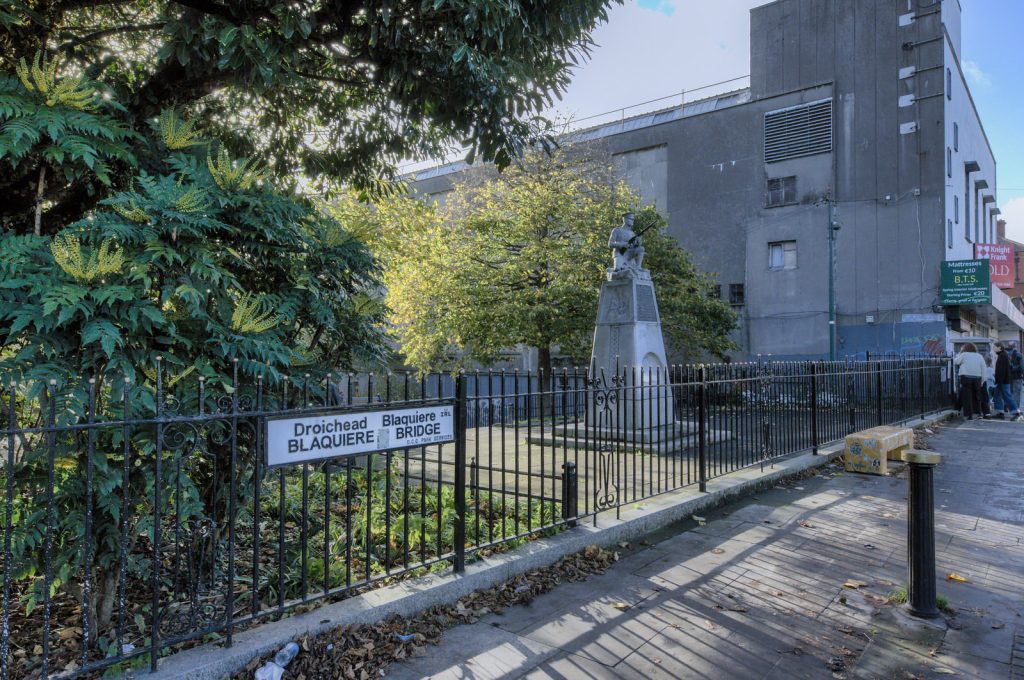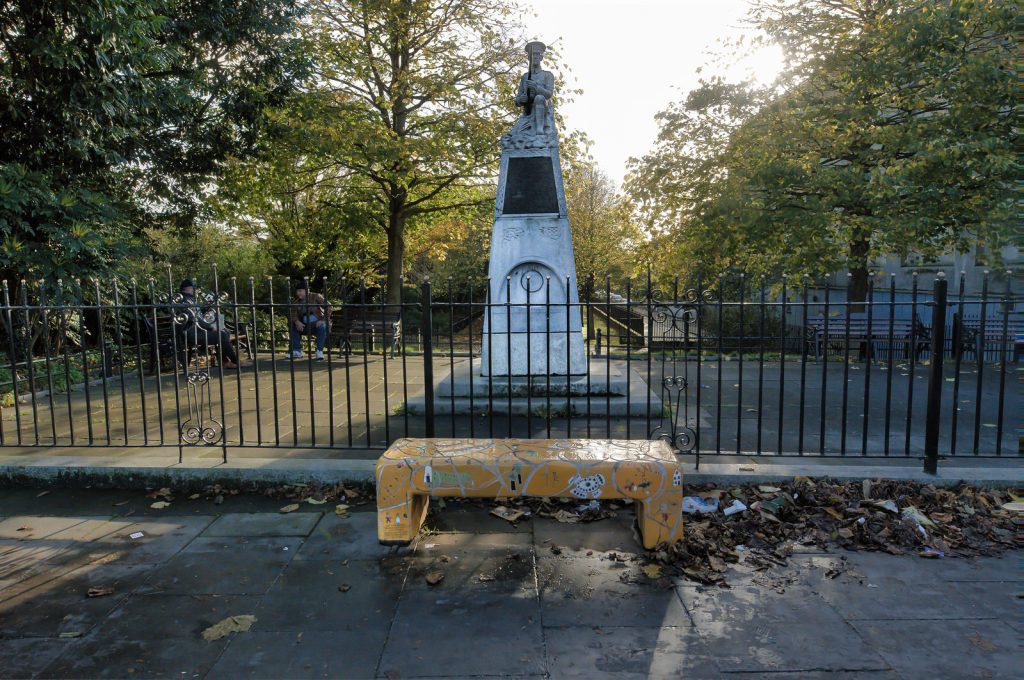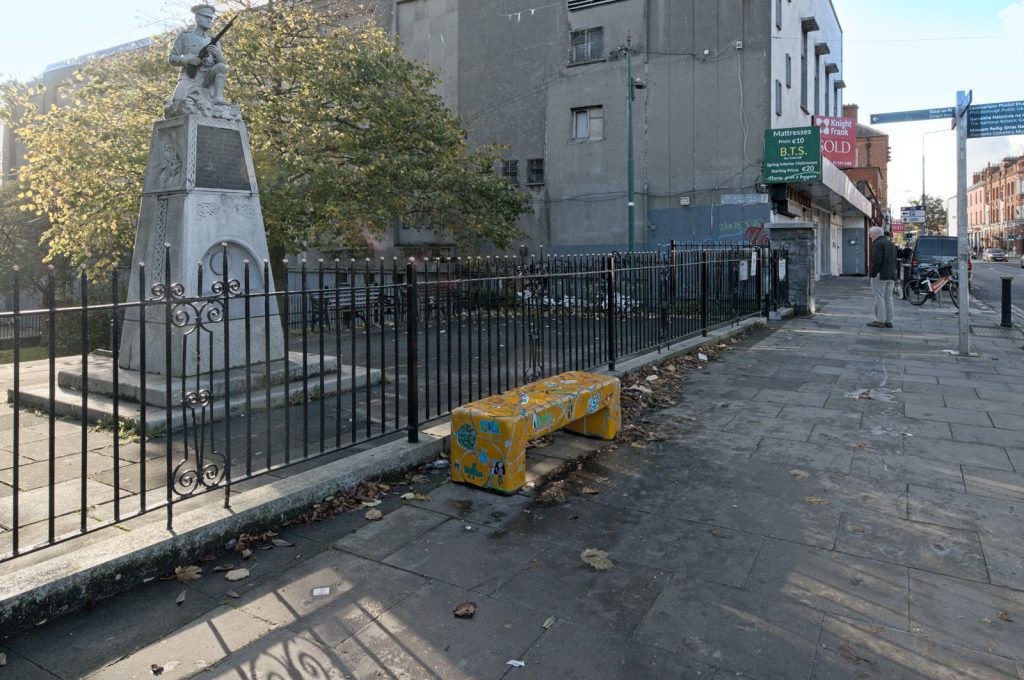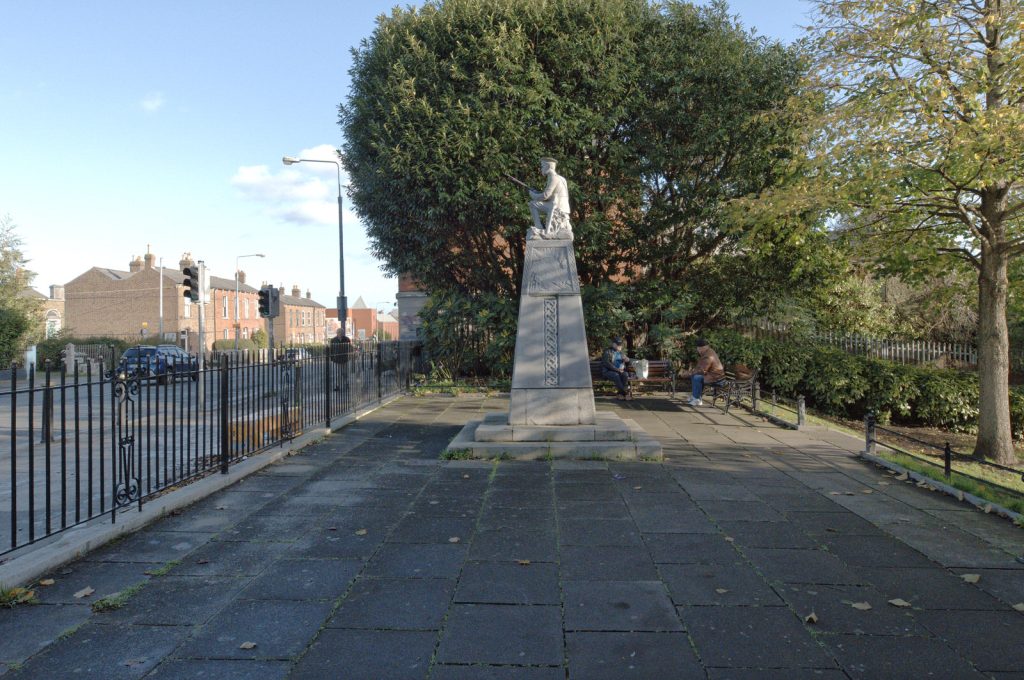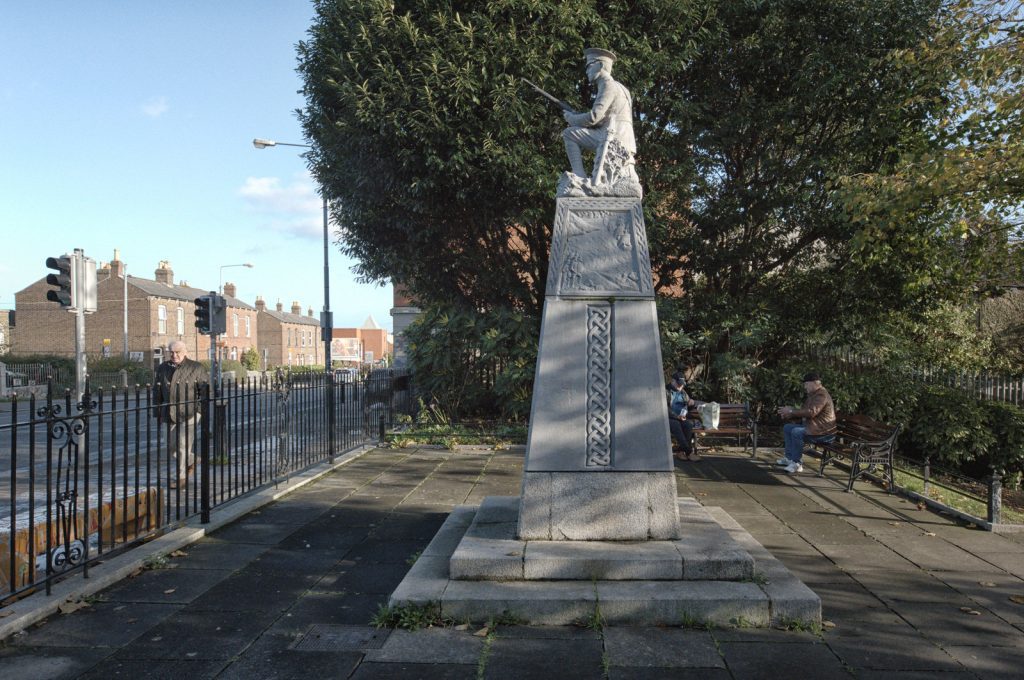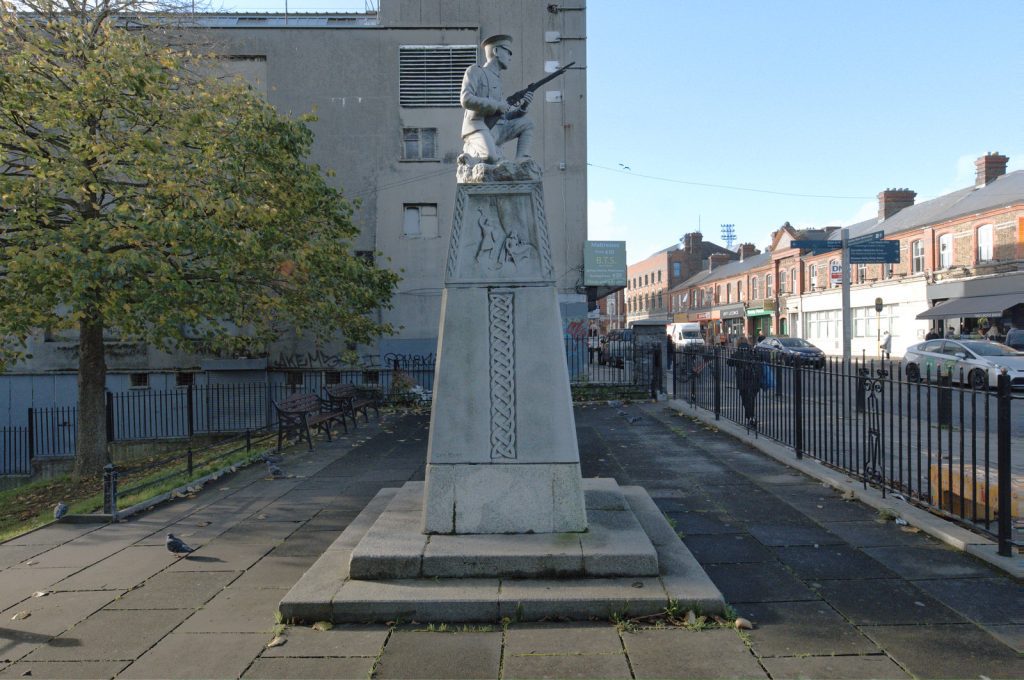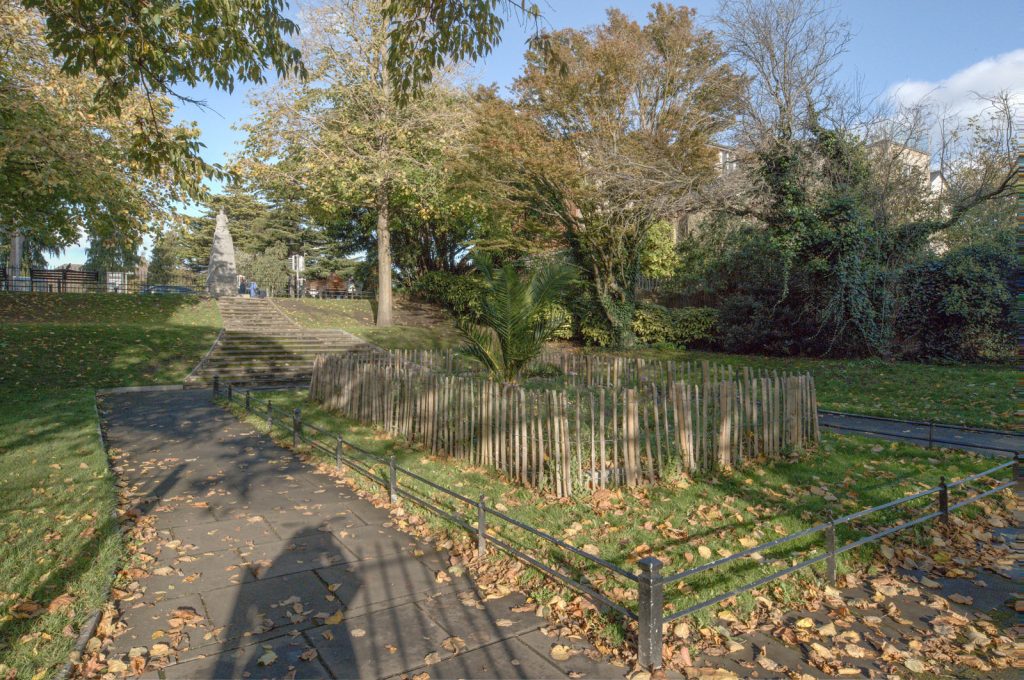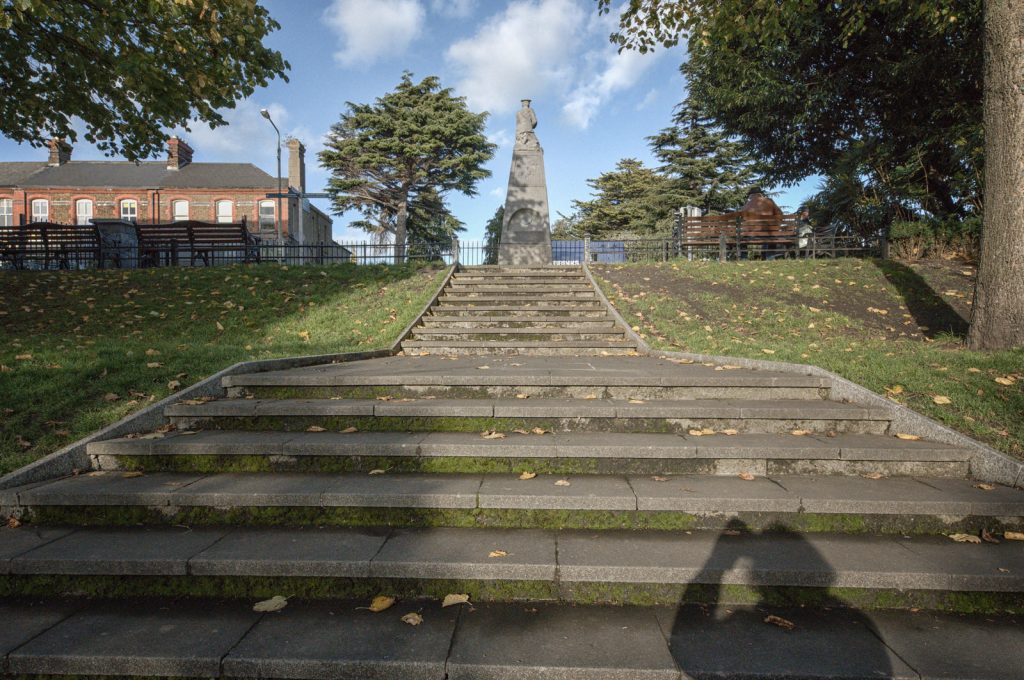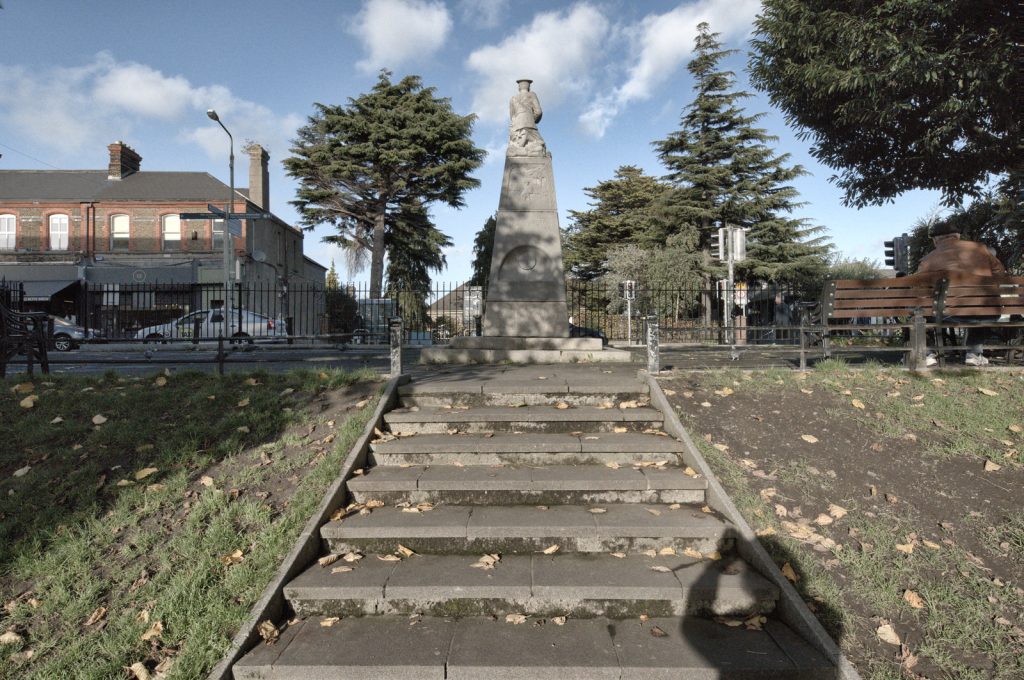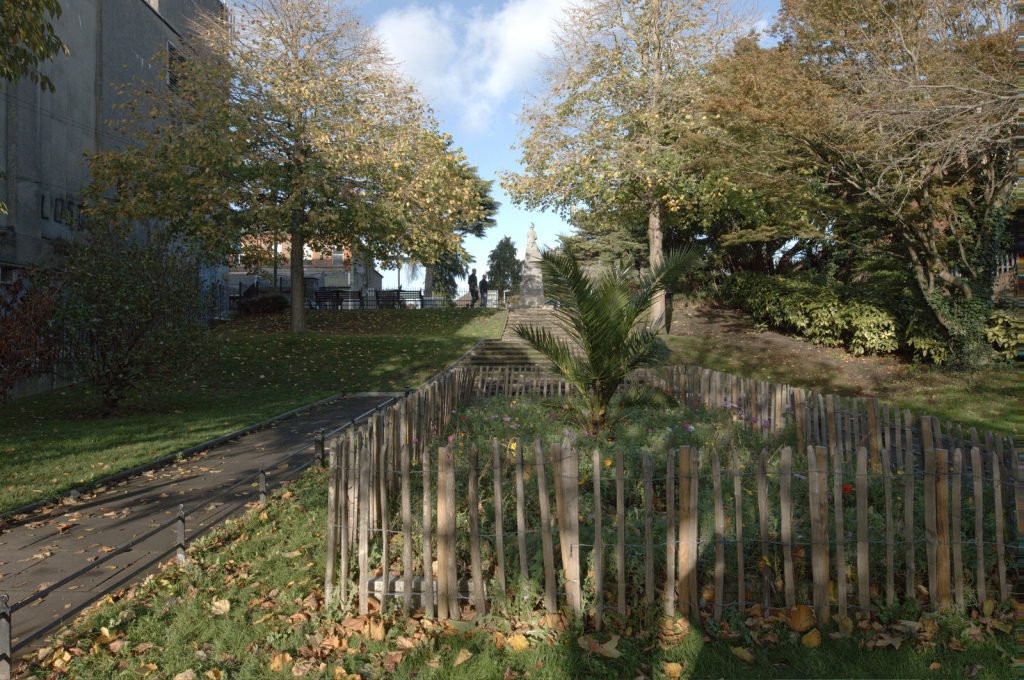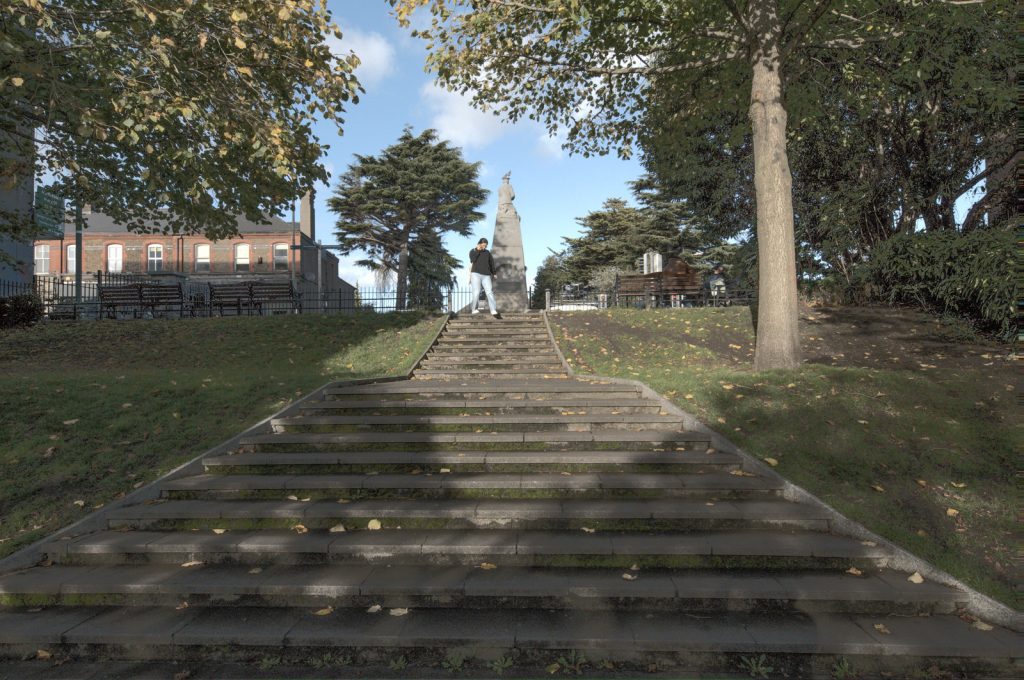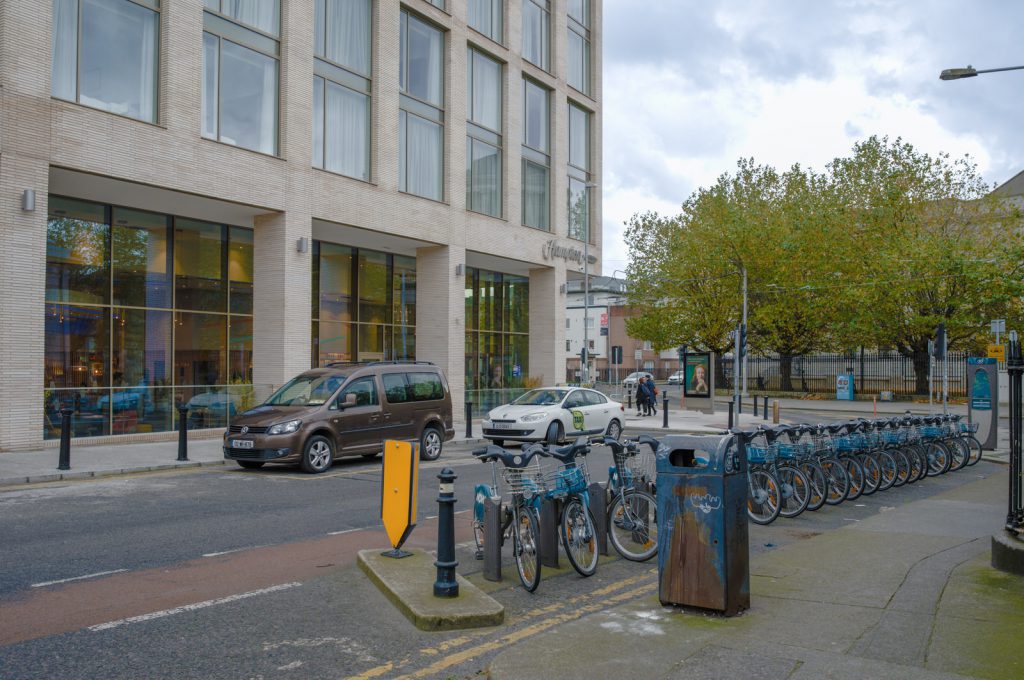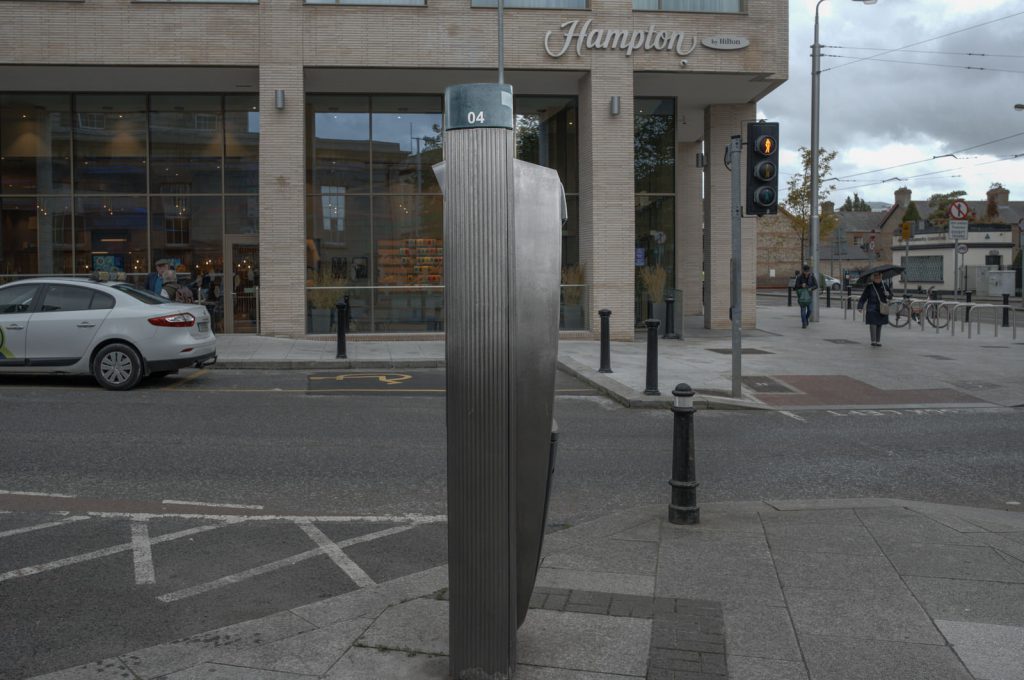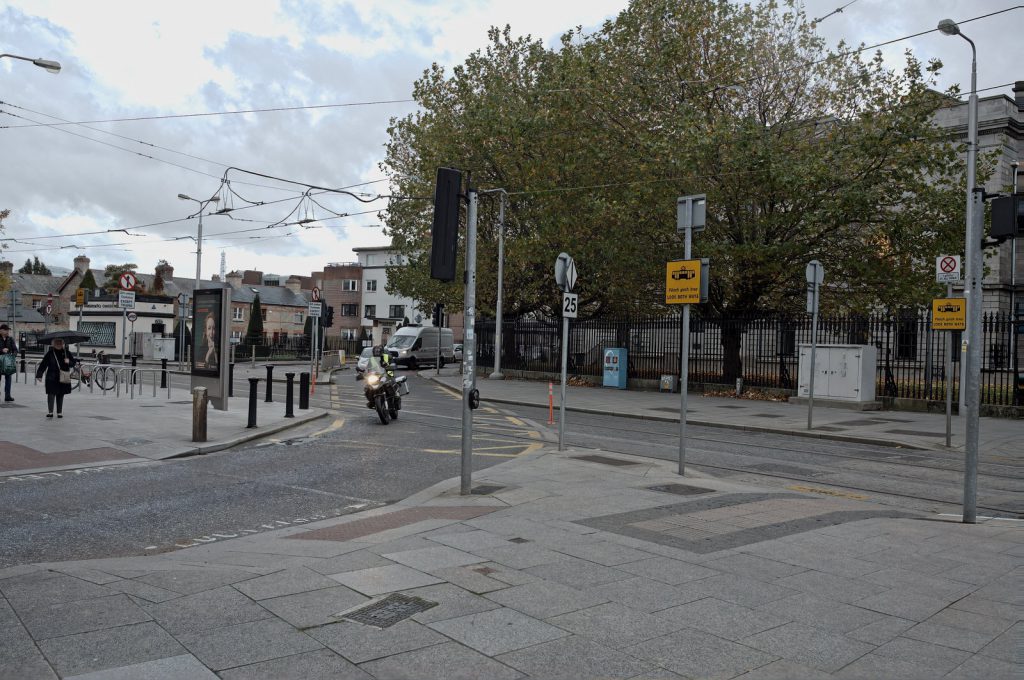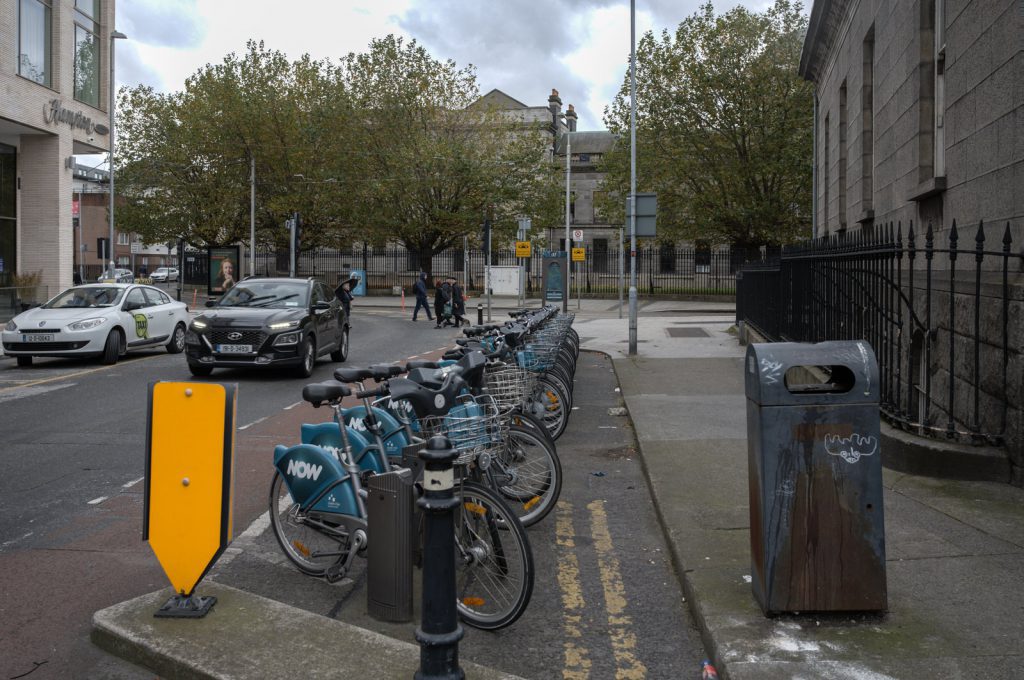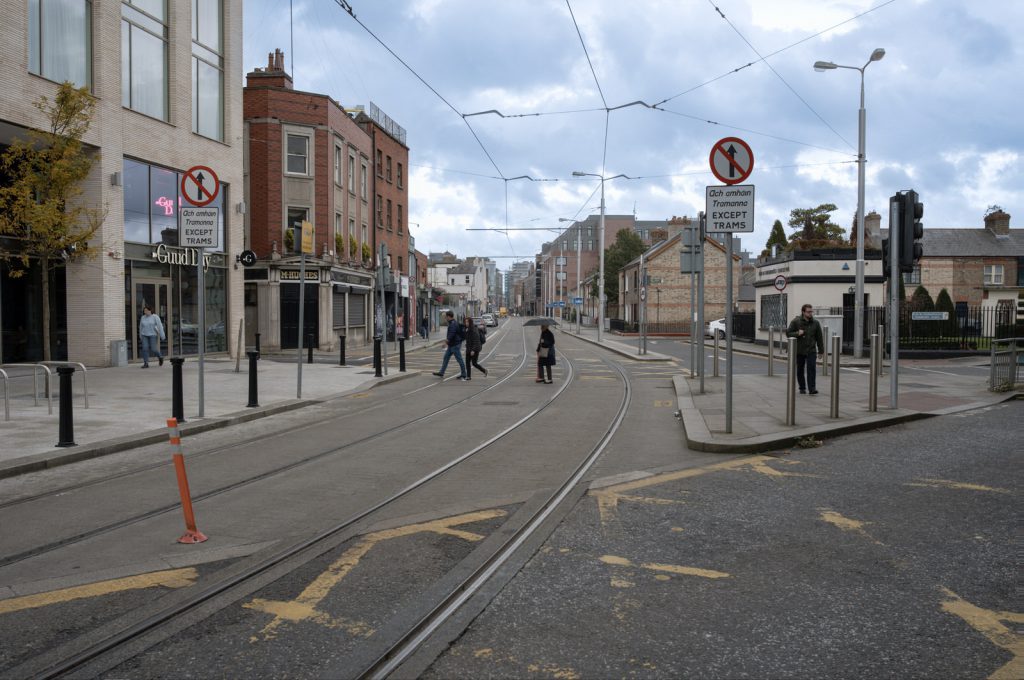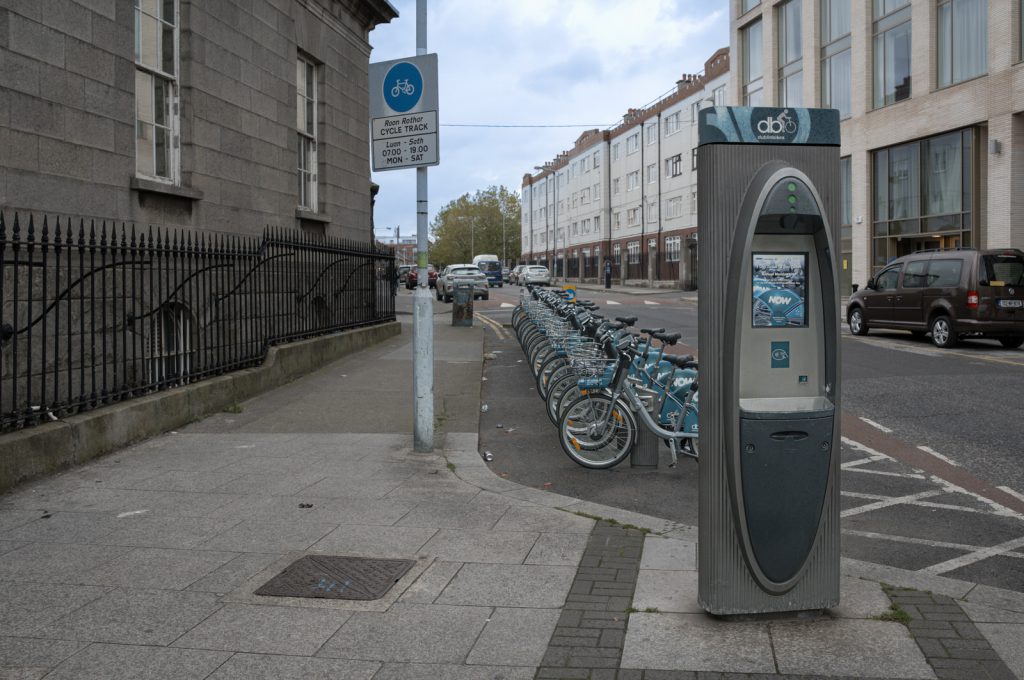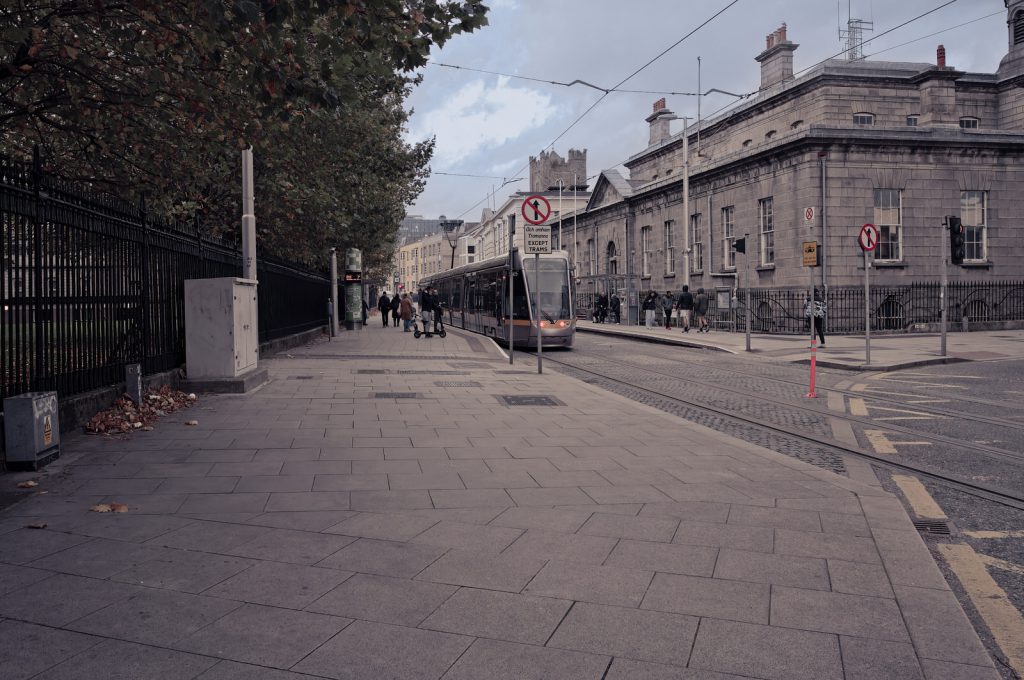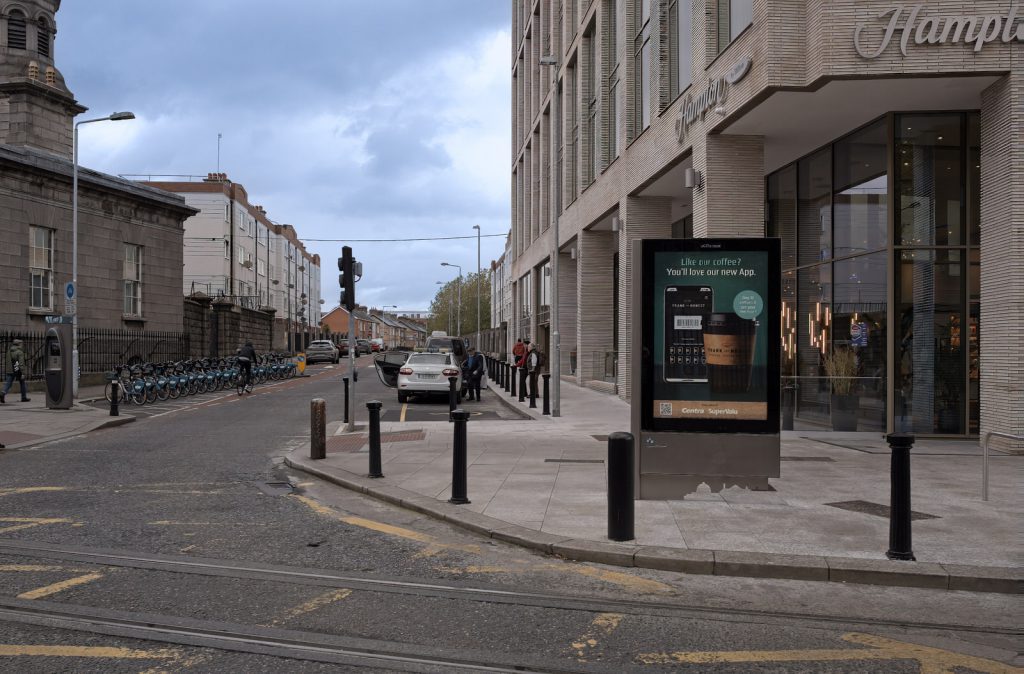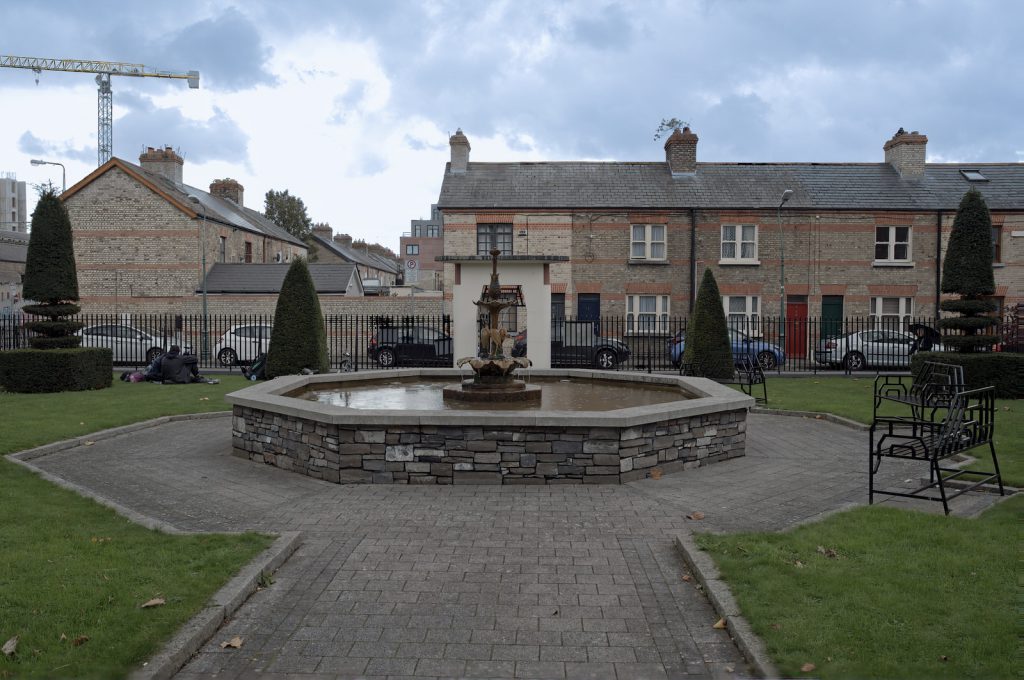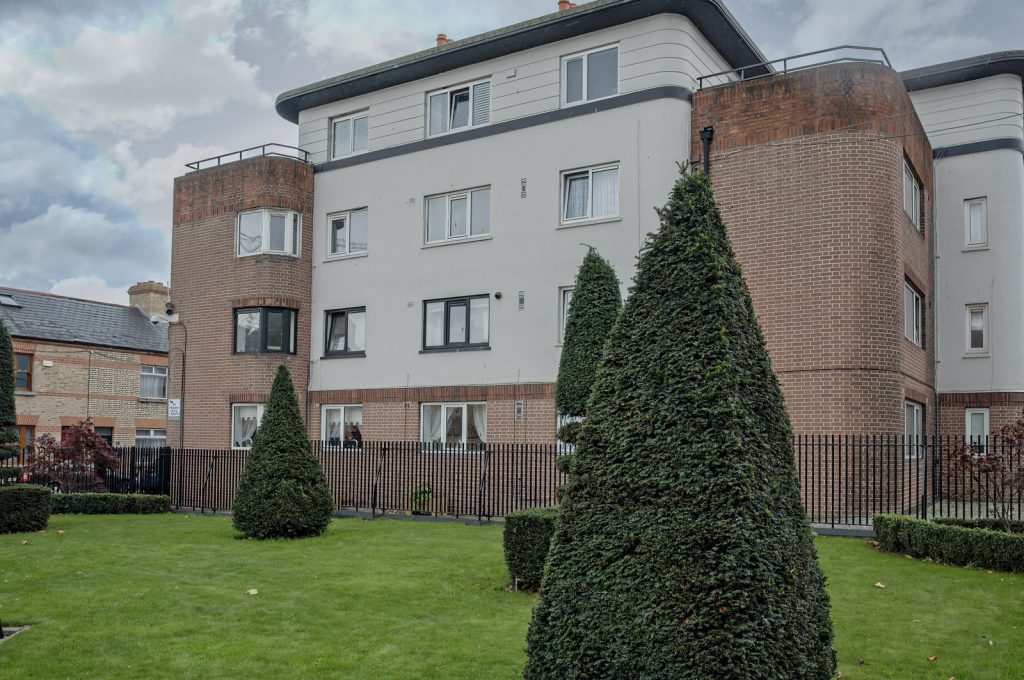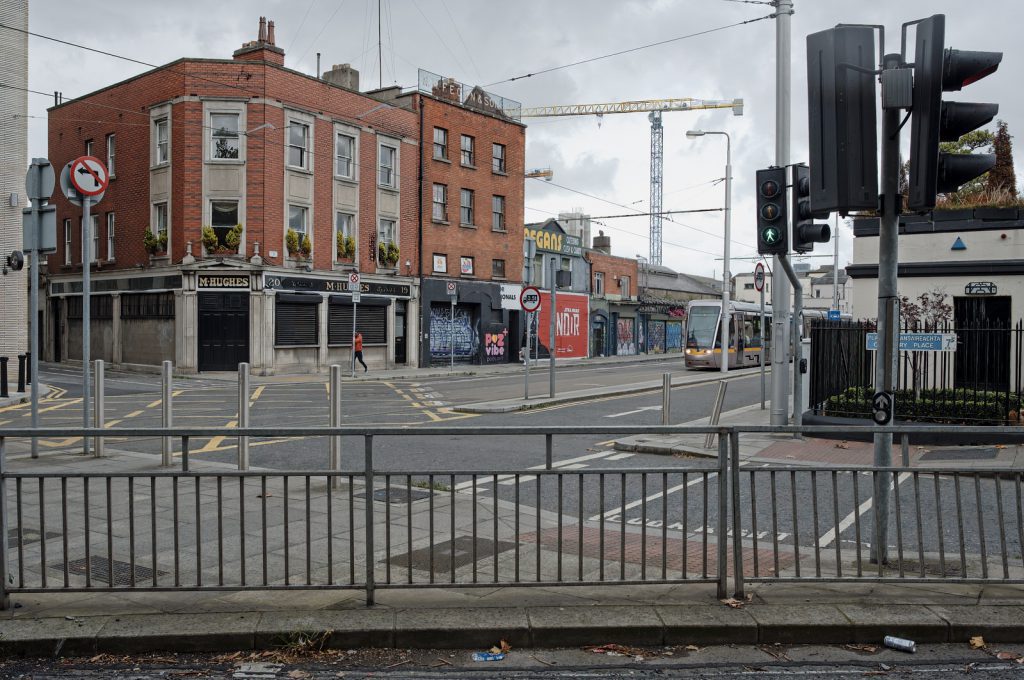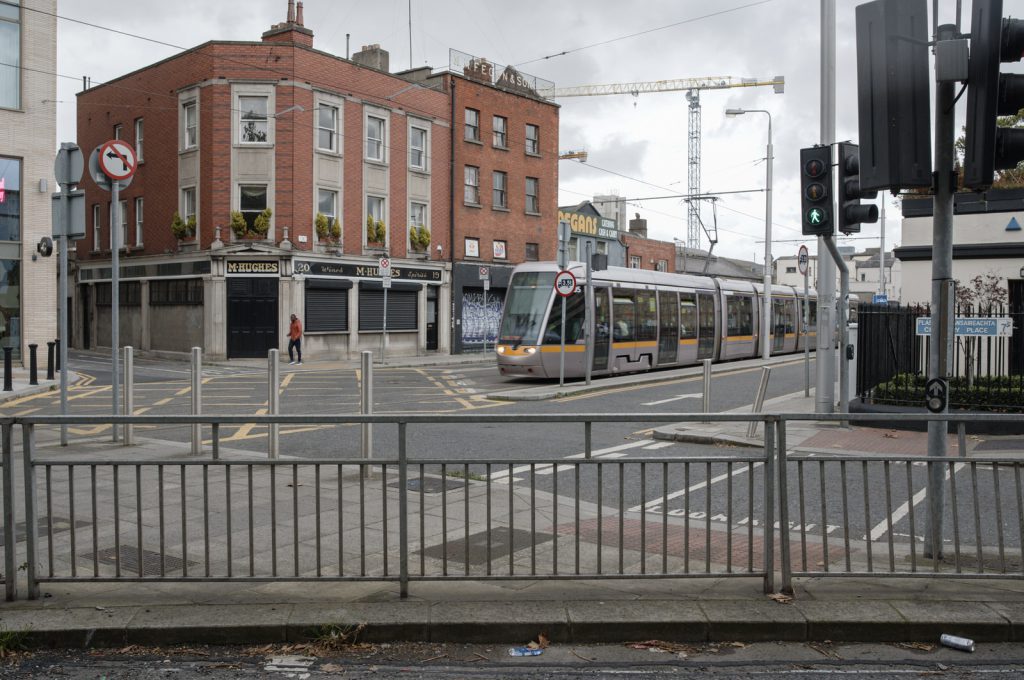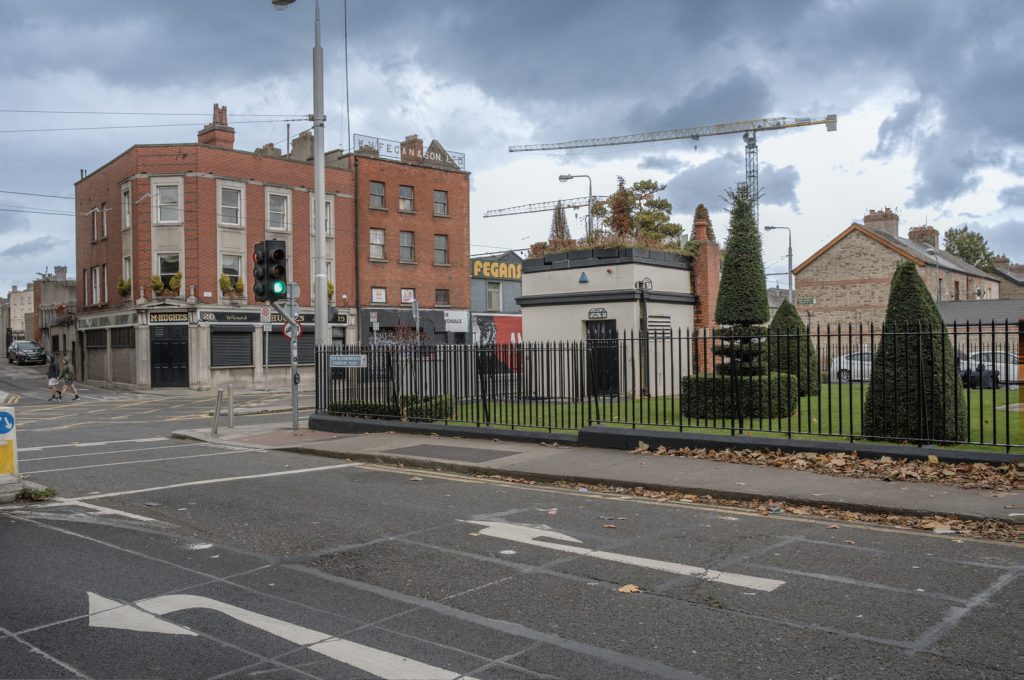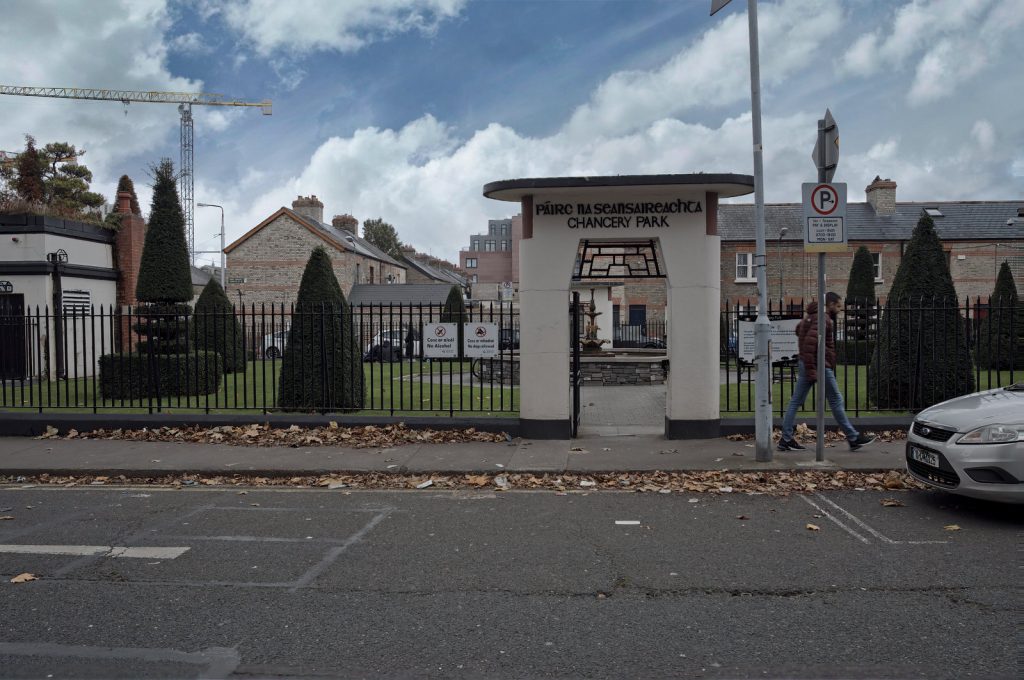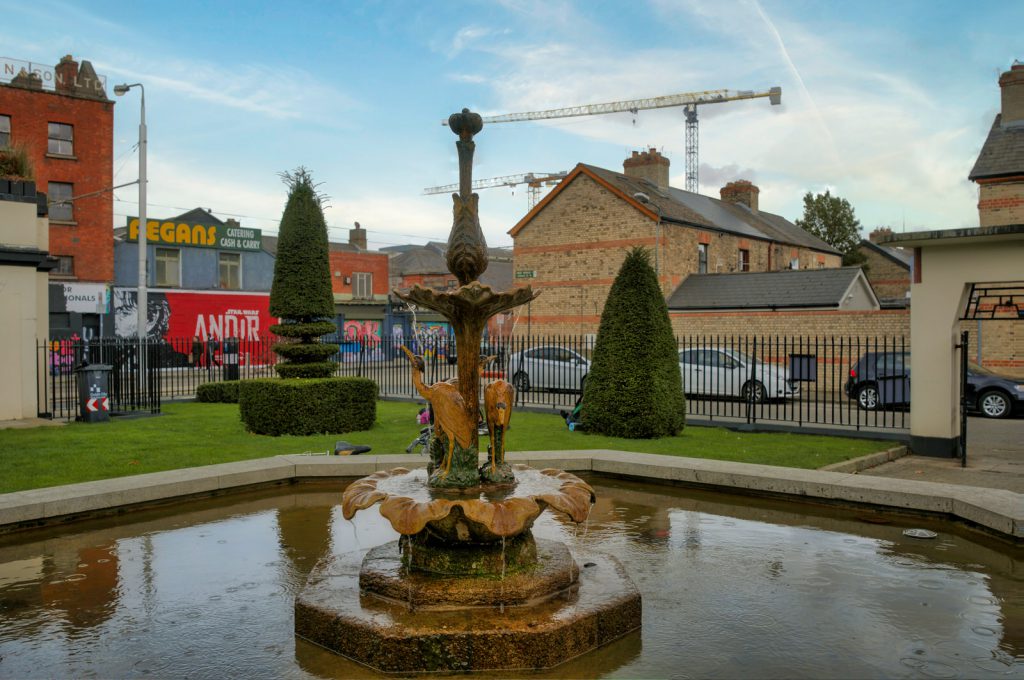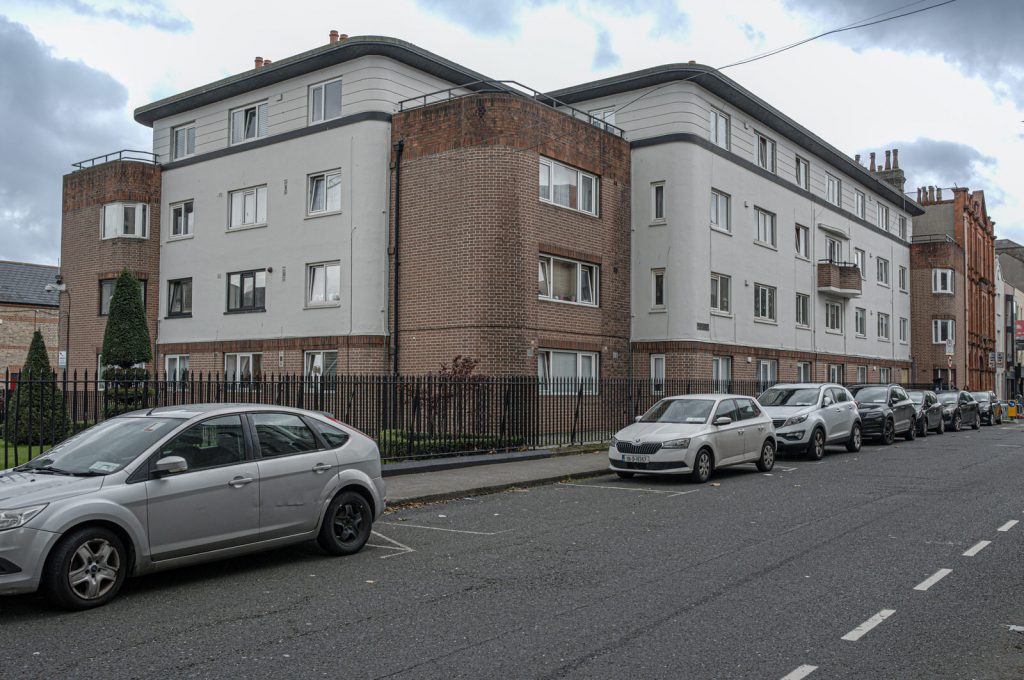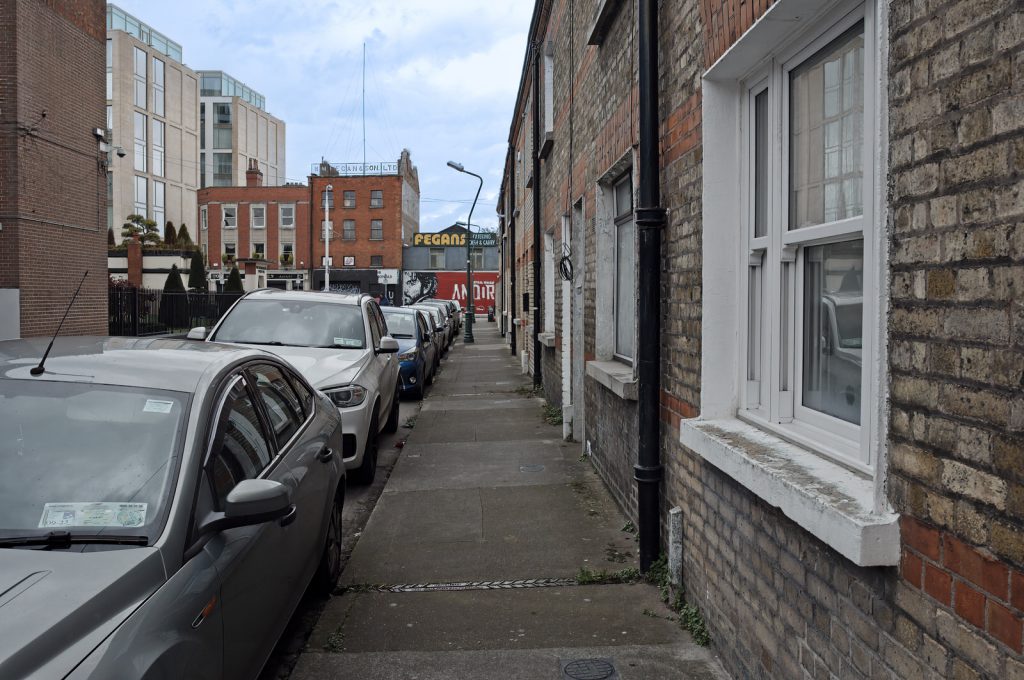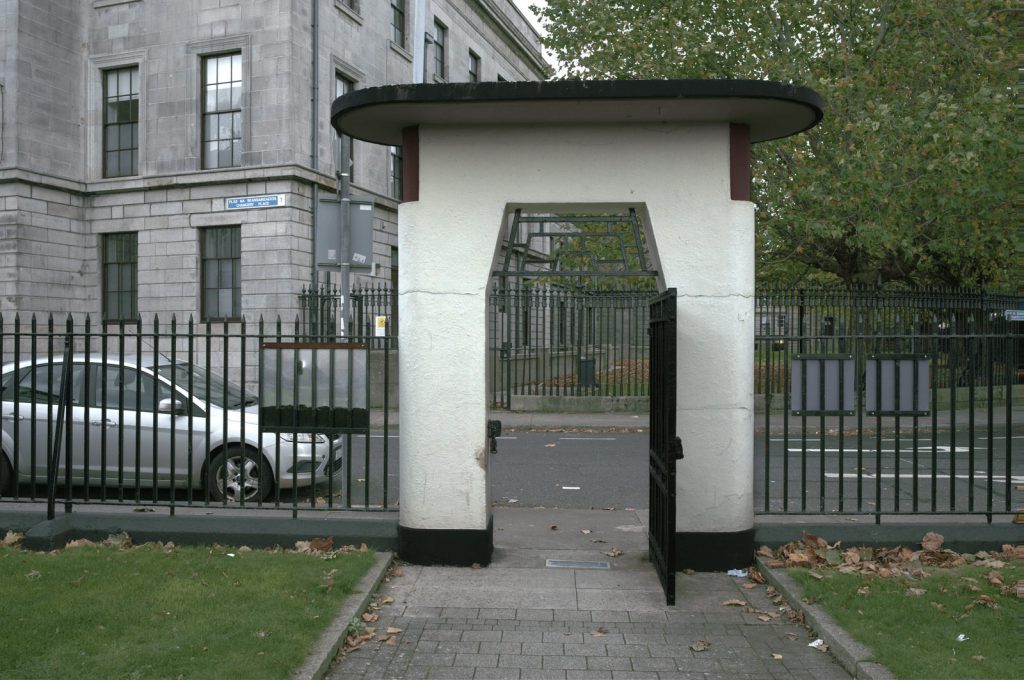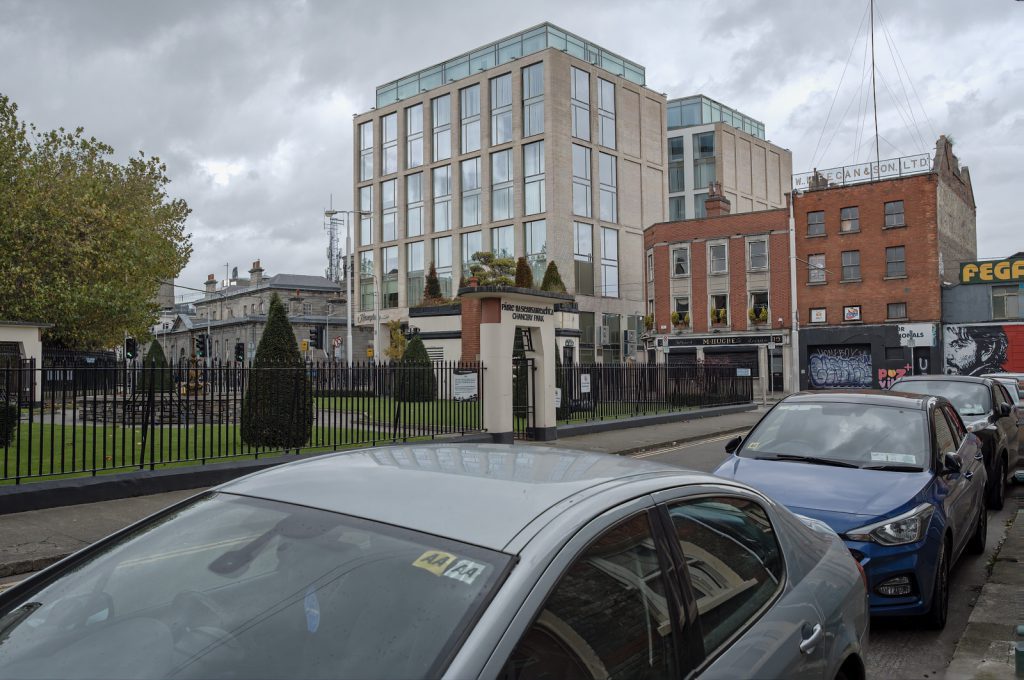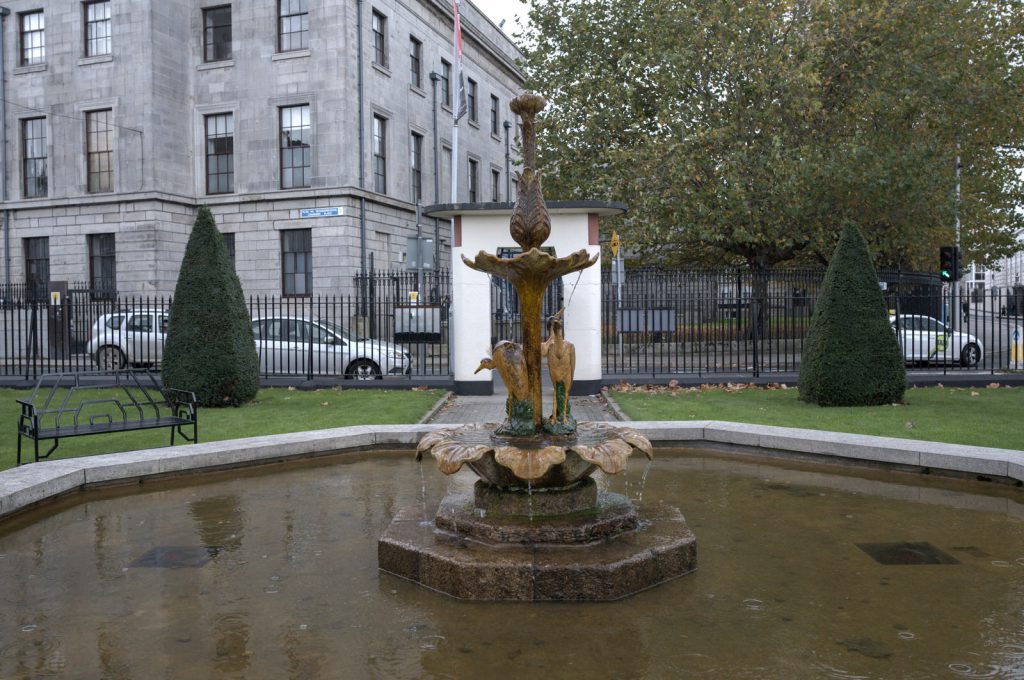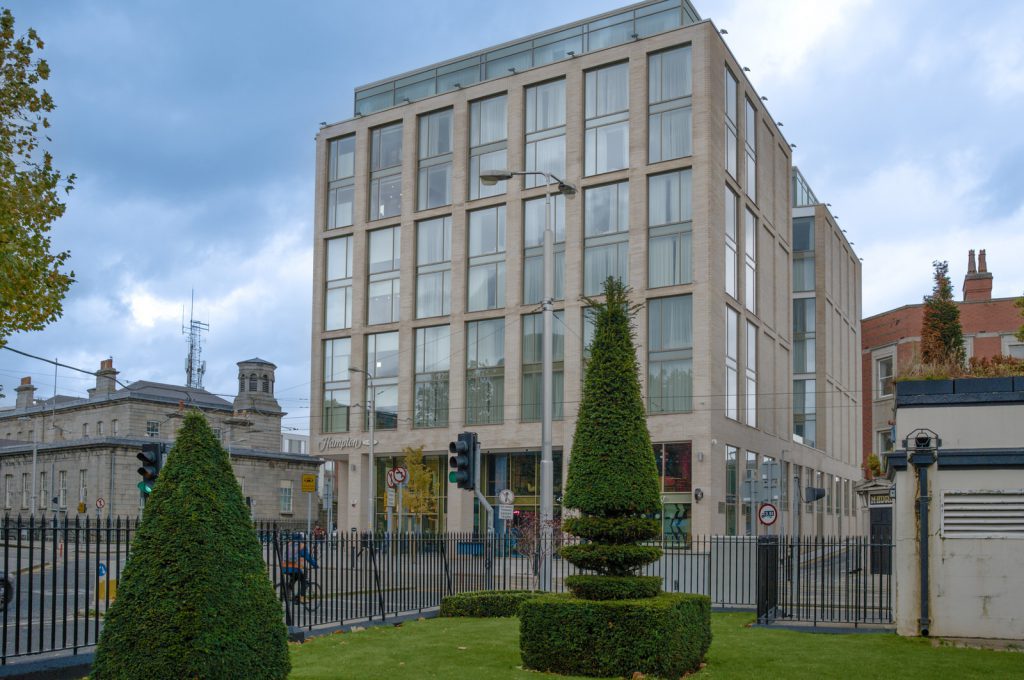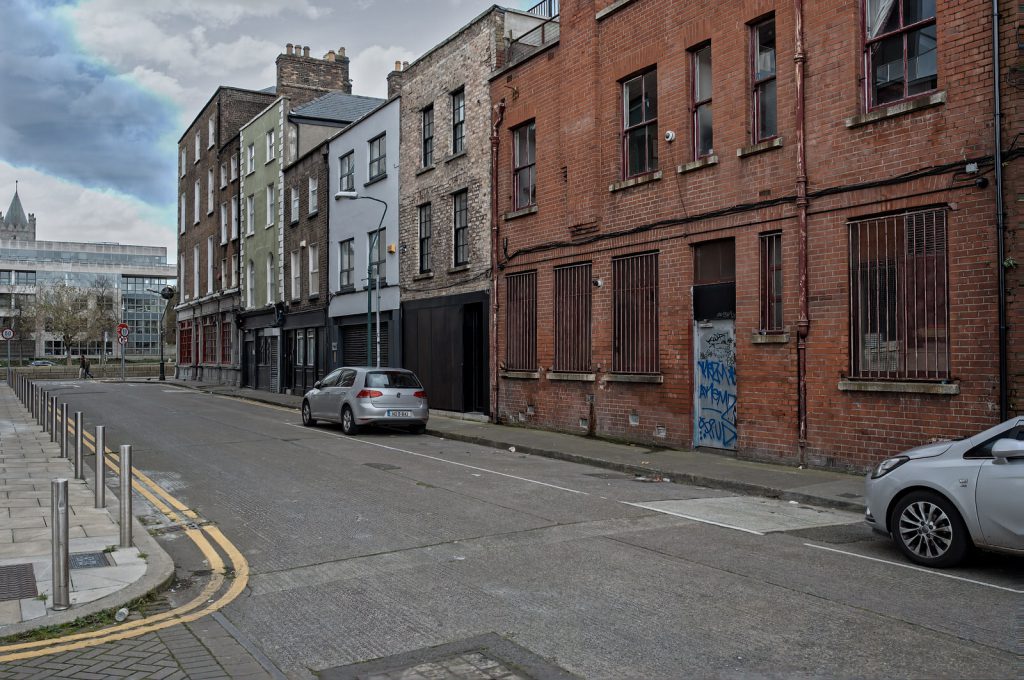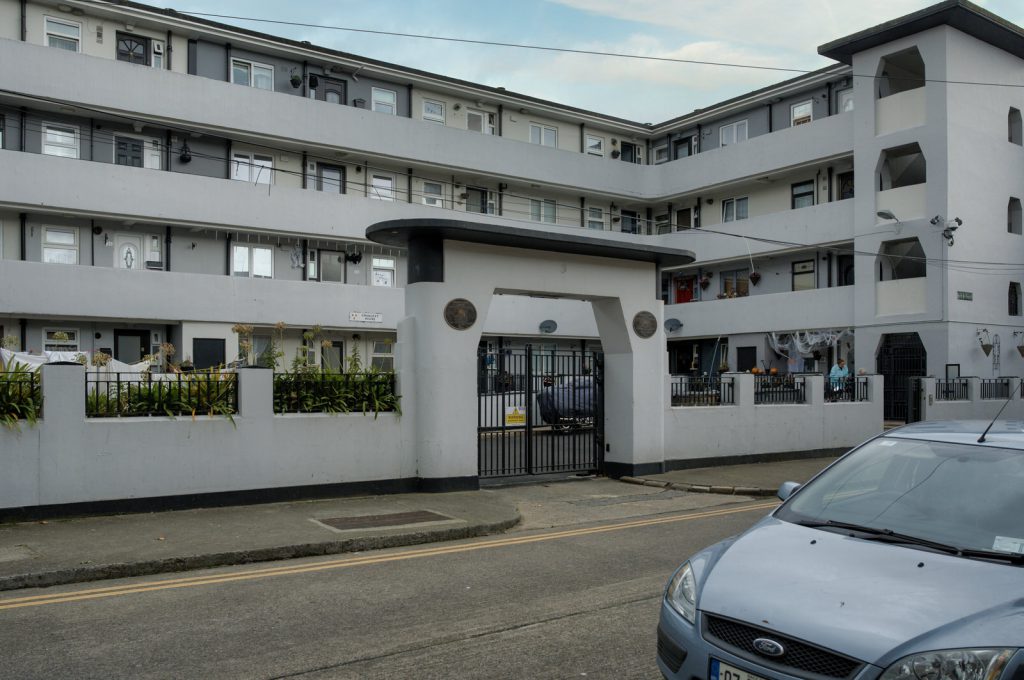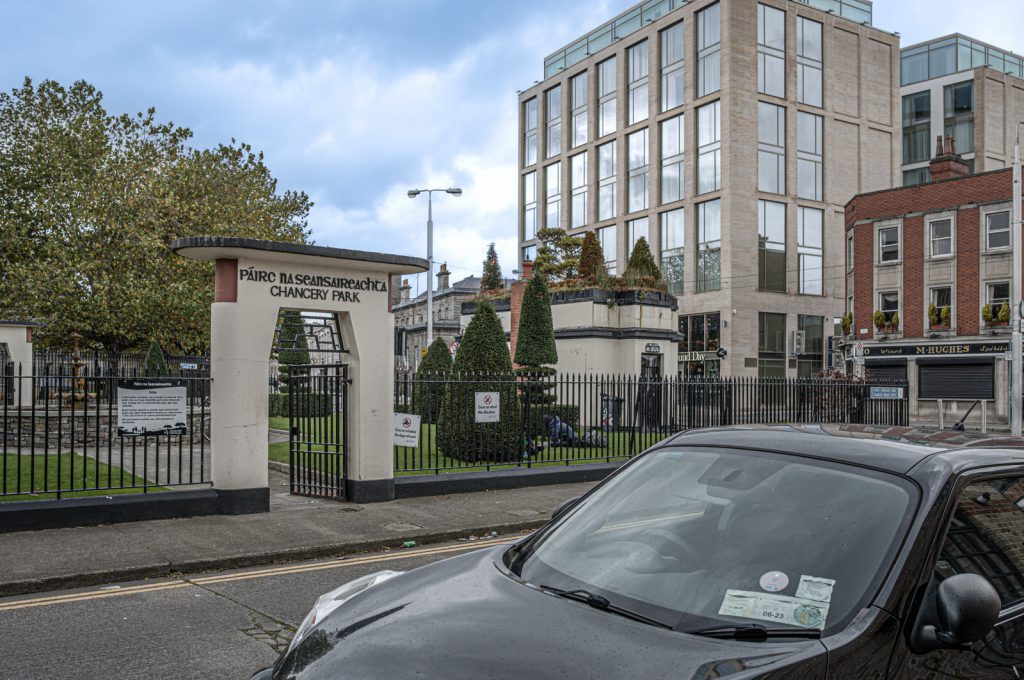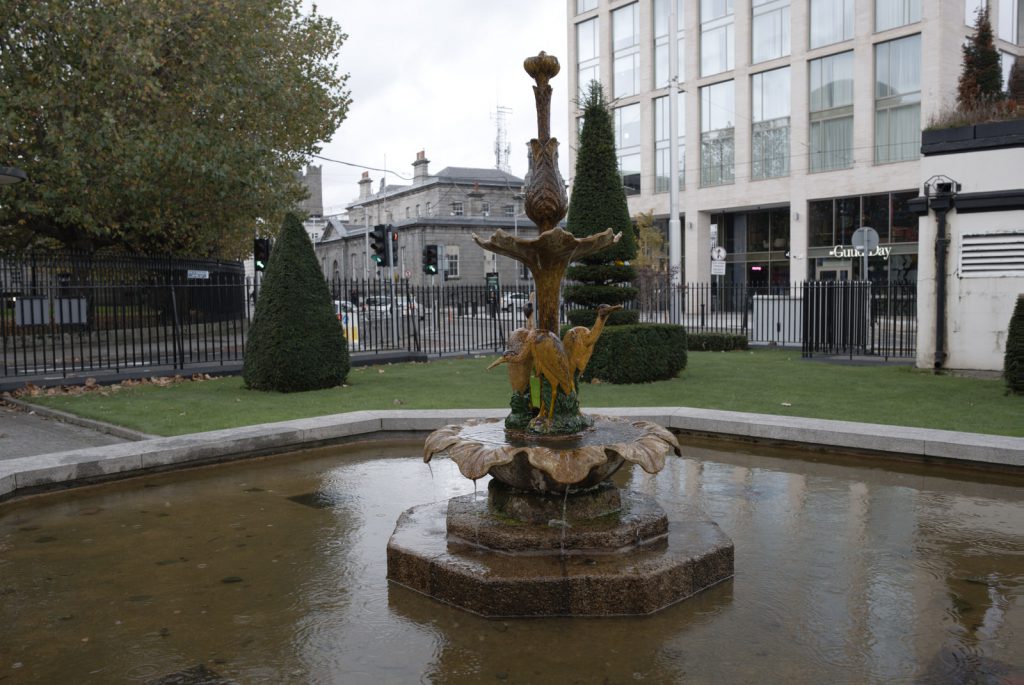AT BLAQUIERE BRIDGE
A colourful bench has been added since my last visit, or maybe I failed to notice it back then,
John Blaquiere ( 1732 – 1812) was a distinguished British soldier, diplomat and politician of French Huguenot descent. He served as Chief Secretary for Ireland between 1772 and 1777. Blacquiere was instrumental in founding the Catholic Committee, with Lord Trimleston and others. Apparently he was known as “Queerblack” in satirical works of the time. The bridge on the Royal Canal at Phibsborough was named after him (Blacquiere Bridge).
Dublin City Council refer to this as the ‘Irish Volunteer Monument in Phibsboro’.
As this monument was not included on Google Maps I recently added a pin so that you can locate it if you ever nearby.
For many years I could not gain full access to this memorial because the gates were usually locked which I assumed was to protect against anti-social behaviour. The monument was vandalised in the 1970’s, and the Volunteer stood for many years with no rifle in his hand, until his restoration in 1991. However it would now appear that Dublin City Council are adopting a different approach and are now leaving gates open twenty four hours per day and from what I seen so far indicates that vandalism has reduced … all that is needed now is a reduction in litter.
It was only recently that I noticed that this monument was originally build as a fountain but the water supply must have been removed as is often the case in Dublin.
The Irish Volunteer Monument commemorates members of the Dublin Brigade of the Irish Volunteers who fought and died during the Easter Rising (1916) and the War of Independence (1919-21). The monument depicts a soldier and below the soldier scenes from Irish mythology and ancient Irish history: the arrival of the Milesians (the first inhabitants of Ireland), Cuchulainn fighting at the ford and the death of King Brian Boru at Clontarf in 1014.
The limestone monument was created by Leo Broe (1899–1966) who himself had been a member of the Volunteers. It was unveiled on 19 February 1939.
